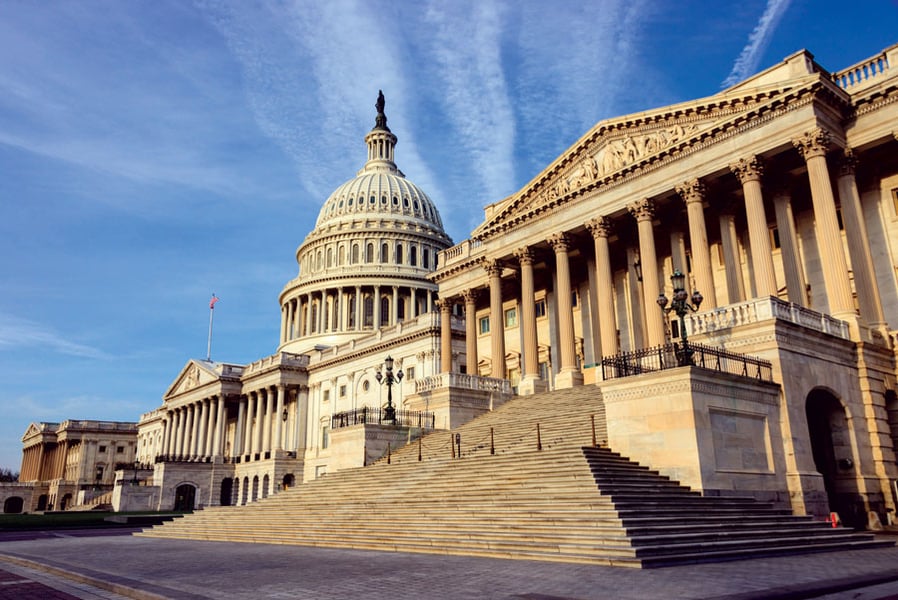

A massive bill designed to stem the economic hemorrhaging caused by the COVID-19 pandemic has secured bipartisan House approval in a voice vote on Friday, but is getting mixed reviews from financial advisers.
The $2.2 trillion behemoth, the Coronavirus Aid, Relief, and Economic Security Act, is slated to send one-time payments of up to $1,200 to many individuals, boost unemployment benefits, provide loan guarantees and grants to large and small businesses, increase health-care spending and reduce personal and business taxes.
The Senate approved the measure unanimously earlier this week. President Donald Trump to signed the into law on Friday.
The scope of the 883-page bill encompasses many dimensions of an economy that has ground to a halt during the coronavirus outbreak.
“That’s the most fiscal stimulus I’ve ever seen,” said Leon LaBrecque, chief growth officer at Sequoia Financial Group. “If it doesn’t work, I don’t know what would.”
Andrew Schwartz, senior vice president of Madison Planning Group in White Plains, N.Y., has had five clients come down with the coronavirus. He supports the congressional response.
“It’s something that needs to be done,” Schwartz said. “If you want an engine to run, you have to give it fuel. Cash is the fuel that drives our economy.”
Other advisers are skeptical the legislation will restart the economy.
“The bill is not going to help corporate earnings,” said Eric Powell, founder of RightPlan Financial in Lakeland, Fla. “This money may not be utilized to boost the economy as a whole by [consumers] buying products. Instead, the money is being used to pay rent, mortgages and things of that nature.”
The stimulus bill is the third measure Congress will have approved over the last several weeks to address health care and other challenges presented by the virus. The Federal Reserve has also cut interest rates during that time.
That one-two punch is misguided because it will diminish the value of the dollar, said Mike Caligiuri, founder of Caligiuri Financial in Columbus, Ohio.
“It’s an illogical economic fallacy that just printing money is going to solve our problems," Caligiuri said. “Printing money doesn’t lead to more goods and services for everyone. This is just a massive bailout. It’s ultimately going to lead to hyperinflation … and everyone’s going to be worse off.”
The stimulus package makes several changes to retirement savings policy that allow participants to access cash for emergencies. Similar steps have been taken in the past in response to hurricanes and other natural disasters.
The measure would waive the 10% penalty on early withdrawals from retirement plans for people who have been impacted by the coronavirus and allow them to put the money back into the plan — and pay taxes on the gains — over three years. Another provision would increase the ceiling on loans against a retirement plan to $100,000 or 100% of a plan, whichever is smaller.
Another provision would waive required minimum distributions this year for certain 401(k) and individual retirement accounts. The distributions would have been required for those 72 and older.
Schwartz likes the RMD change because it will allows retirees to keep money in their plans rather than taking it out in a market hammered by the coronavirus.
“You’re able to reinvest that money now,” Schwartz said.
Some advisers expressed worries that Congress is foisting a $2.2 trillion measure on top of a deficit that is already hovering around $1 trillion.
LaBrecque shares those qualms but said this is a unique moment.
“This isn’t the time to be a deficit hawk,” he said.

Driven by robust transaction activity amid market turbulence and increased focus on billion-dollar plus targets, Echelon Partners expects another all-time high in 2025.

The looming threat of federal funding cuts to state and local governments has lawmakers weighing a levy that was phased out in 1981.

The fintech firms' new tools and integrations address pain points in overseeing investment lineups, account monitoring, and more.

Canadian stocks are on a roll in 2025 as the country prepares to name a new Prime Minister.

Carson is expanding one of its relationships in Florida while Lido Advisors adds an $870 million practice in Silicon Valley.
RIAs face rising regulatory pressure in 2025. Forward-looking firms are responding with embedded technology, not more paperwork.
As inheritances are set to reshape client portfolios and next-gen heirs demand digital-first experiences, firms are retooling their wealth tech stacks and succession models in real time.
